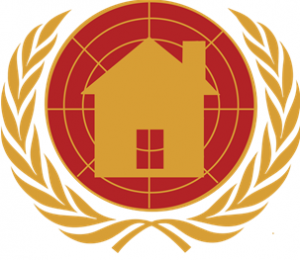
Two years ago we added a fourth year to our social studies curriculum that would focus on contemporary global studies. In preparation, I researched lessons and units that might be suitable for the upcoming year. At the time, I was unfamiliar with Model United Nations (U.N.), but soon learned a great deal about this program that creates an authentic simulation of the UN General Assembly, UN Security Council, or other multilateral body, and introduces students to the world of diplomacy, negotiation, and decision making. I was confident that the group of incoming third-year students would not only be open to exploring something new together, but also be ready to take on what could become a very challenging curriculum.
That first year, we studied the different parts of the United Nations and looked at issues within the 193 member countries. We signed up for our first conference, the William and Mary Middle School Model U.N., where students from all over the East Coast gathered to present as delegates from other countries. The students received their country and committee assignments just a month before the conference and immediately went to work researching and writing papers. At the conference, they shared their research and worked to find common resolutions with other student delegates.
Today, Model U.N. has been added to our curriculum as a Friday Group. It has been an incredible opportunity for all of our students. I have watched them work to become well-versed in worldwide current events, hone their skills in speech writing and presentation, research and write position papers from the mindset of a foreign delegate, and ultimately share all of these things with fellow student delegates from all over the Mid-Atlantic. The skills that they develop–research, writing, public speaking, are nothing compared to the confidence that I see grow within each one.
We may hear that this generation—dubbed the “iGen” by author Jean M. Twenge—spends too much time on their phones, and not enough time truly interacting. Model U.N. is one remedy for that; it gives them an opportunity to make a real difference in the world they are inheriting.
Katrina Hill teaches language arts, social studies, and Friday Groups at Community School. She also leads the Local Hero Awards program. This is her sixteenth year teaching at Community School.
